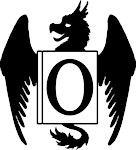Animal Farm
George Orwell
Signet Classics
Fiction, Literary Fiction
Themes: Anthropomorphism, Classics, Dystopias
***+
Description
After years of neglect by their drunken human master, the animals of Manor Farm - heeding the words of a wise old pig, who foresaw a utopian republic of free animals across England - rebel and take control... but what they fought for is not what they find, as the promise of a republic crumbles into a harsh, new reality on the renamed Animal Farm.
Review
This classic is a scathing commentary on politics, totalitarianism, class warfare, revisionist history, and human nature in general, delivering
its messages with the subtlety and repetition of a five-ton jackhammer. The farm animals prove too stupid and easily manipulated to realize they're
being betrayed by those they'd considered their own kind, and power inevitably corrupts absolutely. It's a story with no real heroes, only villains
and fools, plus a few cynics who, while aware of the situation, are ultimately in just as bad a place as the fools and so don't gain much with their
cynicism. Is there any hope for a better tomorrow, or any system that won't inevitably succumb to the base greed and manipulation of the Few over the
Many? Apparently not. This was likely Orwell's point - a point sadly as obvious and valid today as when Animal Farm was first published in
1946 - though it seems like he took an awful lot of time and effort writing this 128-page fable when he could've said much the same thing in a shorter
speech or essay.
As a closing note, the Signet edition I read included a foreword by P. G. Wodehouse, but I confess to giving up on it partway through.
